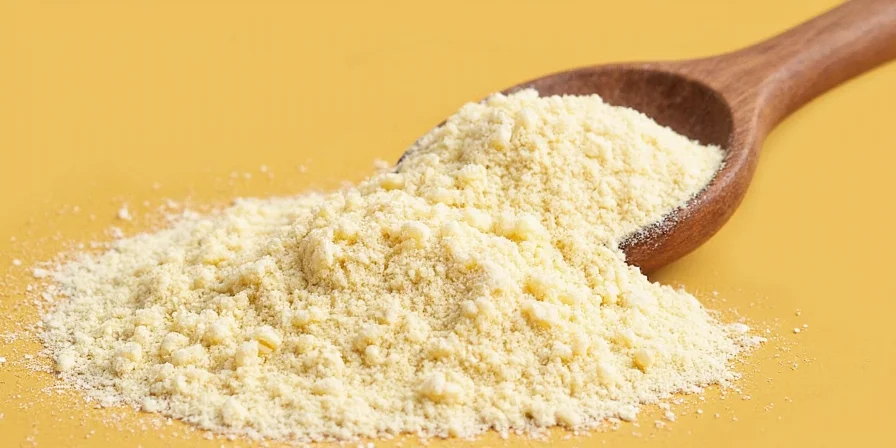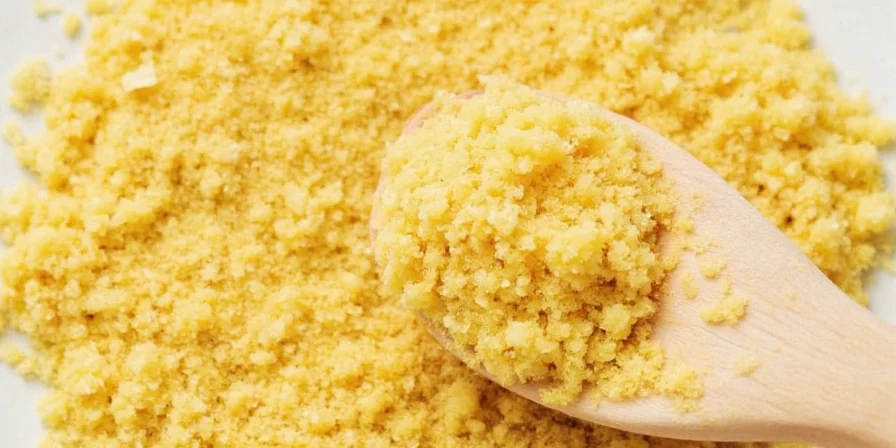The Secret Weapon in Your Kitchen: How to Store and Use Powdered Parmesan Like a Pro

Photo credit: Chef's Kitchen
Introduction: The Parmesan Paradox
Let’s face it — we all love parmesan cheese. It’s that magical sprinkle of salt, umami, and flavor that can turn even the most basic dish into a gourmet experience. But while freshly grated parmesan is a kitchen staple, powdered parmesan has its own unique place in the culinary world. It’s not just a lazy man’s shortcut; it’s a tool that, when used and stored correctly, can elevate your cooking to new heights.
In this article, we’ll dive deep into the world of powdered parmesan. We’ll explore what exactly it is, how it compares to its fresh counterpart, and most importantly — how to store and use it like a seasoned chef. Whether you're a professional cook or a home enthusiast, this guide is for you.
What Exactly Is Powdered Parmesan?
Powdered parmesan is a finely ground version of the classic parmesan cheese. It is typically made from aged parmesan that has been processed into a powder form, often with the addition of cornstarch or other anti-caking agents to prevent clumping. This makes it a convenient option for those who want to add parmesan flavor to their dishes without the hassle of grating it by hand.
However, it's important to note that powdered parmesan is not the same as freshly grated parmesan. Fresh parmesan has a more complex flavor profile and a richer texture, while powdered parmesan is more of a flavor enhancer that dissolves easily into sauces and coatings.
Key Differences Between Powdered and Fresh Parmesan
| Characteristic | Powdered Parmesan | Fresh Parmesan |
|---|---|---|
| Texture | Fine powder | Coarse, grated |
| Flavor | Concentrated, salty | Rich, umami, complex |
| Usage | Best for sauces, coatings, and baked goods | Best for toppings, pizzas, and salads |
| Shelf Life | Longer (up to 6 months) | Shorter (up to 2 weeks after opening) |
How to Store Powdered Parmesan: The 3 Rules of Shelf Life
Proper storage is key to keeping powdered parmesan at its best. Here are three simple rules that will help you extend its shelf life and preserve its flavor:
Rule 1: Keep It Dry
Powdered parmesan is highly sensitive to moisture. Once it gets wet, it can become clumpy, lose its flavor, and even spoil. To avoid this, store it in an airtight container in a cool, dry place — like a pantry or a cupboard.
Tip: If you're using it frequently, consider storing it in the fridge. The cold temperature will slow down any potential moisture absorption and keep the powder fresh for even longer.
Rule 2: Avoid Heat and Light
Heat and light can cause powdered parmesan to lose its flavor and potency. That means you should avoid storing it near the stove, oven, or in a sunny window. The ideal storage location is somewhere dark, cool, and away from heat sources.
Tip: If you're a fan of using powdered parmesan in your baking, consider transferring it to a glass jar with a tight-fitting lid. This will protect it from both light and air, ensuring it stays as fresh as possible.
Rule 3: Use It Within 6 Months
Even with perfect storage conditions, powdered parmesan doesn’t last forever. As a rule of thumb, it’s best to use it within 6 months of purchase. After that, the flavor begins to degrade, and the cheese may start to lose its umami punch.
Tip: If you're not using it as often, consider dividing it into smaller portions and freezing it. This way, you can keep it fresh for up to a year and still have it ready when you need it.
How to Use Powdered Parmesan: 10 Pro Tips
Now that you know how to store powdered parmesan, it’s time to learn how to use it like a pro. Here are 10 practical and creative tips that will help you get the most out of this versatile ingredient:
- Enhance Sauces: Add a teaspoon of powdered parmesan to your pasta sauce, soup, or creamy risotto. It will deepen the flavor and add a rich umami note.
- Bake with It: Sprinkle powdered parmesan over baked chicken, fish, or vegetables before baking. It will form a golden, crispy crust that’s both flavorful and delicious.
- Make a Parmesan Mixture: Mix powdered parmesan with breadcrumbs and a little olive oil to create a quick and easy coating for fried foods.
- Use in Baked Goods: Incorporate powdered parmesan into your next batch of cookies, crackers, or savory muffins for a unique and gourmet twist.
- Make a Parmesan Butter: Mix powdered parmesan with softened butter and a pinch of salt. This can be used as a topping for steaks, potatoes, or even toast.
- Enhance Grated Cheese: If you’re using freshly grated parmesan, mix in a small amount of powdered parmesan for a more intense flavor.
- Make a Parmesan Foam: Combine powdered parmesan with a bit of cream or milk and whisk it into a foam. This is a fun and creative way to add parmesan flavor to your dishes.
- Use as a Coating for Vegetables: Toss your favorite vegetables with powdered parmesan and a bit of oil before roasting for a savory, cheesy flavor.
- Make a Parmesan Dip: Mix powdered parmesan with mayonnaise, sour cream, or cream cheese for a quick and easy dip that pairs well with chips, crackers, or vegetables.
- Use in Soups and Stews: A pinch of powdered parmesan can add a rich, salty depth to your next soup or stew, especially if you're using a dairy-based broth.
Common Mistakes When Using Powdered Parmesan
Even with the best intentions, people often make mistakes when using powdered parmesan. Here are a few common pitfalls to avoid:
- Using Too Much: Powdered parmesan is concentrated, so a little goes a long way. Using too much can make your dish overly salty and overpowering.
- Using It as a Substitute for Fresh: While powdered parmesan is great for certain dishes, it’s not a direct substitute for fresh parmesan in all cases. Use it as a flavor enhancer, not a replacement.
- Using It in Salads: Powdered parmesan doesn’t hold up well in salads. It tends to dissolve and lose its texture. Fresh parmesan is better for toppings and salads.
- Not Storing It Properly: As we’ve already covered, improper storage can lead to clumping, loss of flavor, and even spoilage. Always store it in an airtight container in a cool, dry place.
Why Powdered Parmesan Is a Kitchen Staple
Despite the myths around it, powdered parmesan is a valuable addition to any kitchen. It’s convenient, long-lasting, and versatile. Whether you're making a quick sauce, baking a savory cake, or adding a bit of umami to your next meal, powdered parmesan has your back.
It’s also a great option for those who don’t have access to fresh parmesan, or for those who want to reduce the amount of cheese they use in their cooking. With the right storage and usage techniques, powdered parmesan can be a game-changer in your kitchen.
Final Thoughts: Mastering the Art of Parmesan
So, whether you're a professional chef or a home cook, it's time to embrace the power of powdered parmesan. With the right storage techniques and a little creativity, you can use this ingredient to enhance your cooking in ways you never thought possible.
Remember, the key to using powdered parmesan like a pro is to use it wisely, store it properly, and never underestimate its power. After all, a little bit of powdered parmesan can go a long way in making your dishes taste like they were made in a five-star restaurant.
Now, go forth and sprinkle your way to culinary greatness!

Photo credit: The Culinary Lab
References
For more information on the science of cheese and the use of powdered parmesan in cooking, refer to the following resources:
- Chef’s Guide to Cheese: The Ultimate Resource
- Science of Flavor: How Powdered Cheese Works
- Professional Kitchen Tips: How to Store and Use Powdered Cheese
Keep experimenting, keep cooking, and most importantly — keep enjoying the flavors that make your kitchen a place of creativity and inspiration.
Further Reading
If you're interested in learning more about other spices and how to store and use them, consider exploring the following topics:
- How to Store and Use Paprika
- Maximizing the Flavor of Cumin
- Pro Tips for Using and Storing Cayenne Pepper
Until next time, keep your kitchen full of flavor and your shelves full of spices!










 浙公网安备
33010002000092号
浙公网安备
33010002000092号 浙B2-20120091-4
浙B2-20120091-4